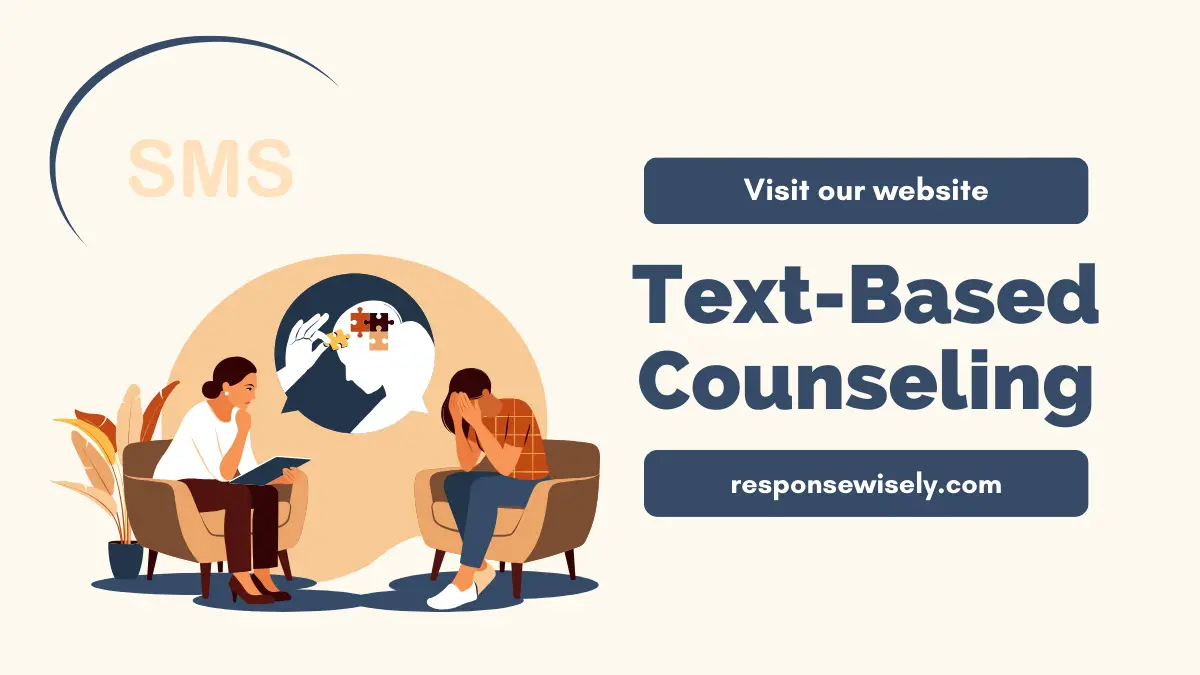As a seasoned counselor, I’ve witnessed the transformative power of therapy firsthand. In modern digital era, text-based counseling is emerging as a valuable tool in mental health treatment. With its accessibility and convenience, this form of therapy is breaking barriers and reaching individuals who may not have sought help otherwise.
Text-based counseling offers a unique platform for individuals to express themselves freely and openly, without the constraints of face-to-face interaction. Through written communication, clients can investigate deep into their emotions and thoughts, paving the way for self-discovery and healing. Join me as we explore the therapeutic potential of text-based counseling and its impact on mental health care.
Understanding Text-Based Counseling
Definition and Overview
Text-based counseling is a form of therapy where individuals communicate with a therapist through text messages, emails, or online chat platforms. It offers a convenient and accessible way for people to seek help for their mental health concerns from anywhere at any time. This mode of counseling allows individuals to express their feelings and thoughts in writing, promoting self-reflection and insight.
Benefits of Text-Based Counseling
- Accessibility: Individuals can engage in therapy from the comfort of their own space without the need to travel to a physical location.
- Convenience: Scheduling sessions is flexible, enabling individuals to communicate with their therapist at a time that works best for them.
- Anonymity: Text-based counseling offers a level of anonymity that can make it easier for individuals to open up about sensitive topics.
- Documentation: Messages exchanged during counseling sessions can be saved for future reference and reflection.
- Lack of Non-Verbal Cues: The absence of tone of voice and body language in text-based communication can sometimes lead to misinterpretation.
- Real-Time Interaction: Text-based counseling may lack immediate responses that are possible in face-to-face or video therapy sessions.
- Technological Challenges: Issues with internet connectivity or technical glitches can disrupt the flow of counseling sessions.
I believe it’s important to recognize the advantages and considerations of text-based counseling to make an well-informed choice about its suitability for mental health support.
How Text-Based Counseling Works
Platforms and Tools
Text-based counseling is usually conducted on secure online platforms or apps designed for mental health support. These platforms often offer encrypted messaging to ensure confidentiality. Therapists use secure portals to communicate with clients, providing a safe space for discussing sensitive issues.
Communication Methods
In text-based counseling, clients and therapists interact through text messages, emails, or online chat. This form of communication allows for asynchronous exchanges, giving individuals time to reflect on their thoughts before responding. Clients can message their therapists at their convenience, promoting flexibility in scheduling sessions.
Effectiveness of Text-Based Counseling
Research Studies
In recent years, numerous studies have examined the effectiveness of text-based counseling. Research suggests that text-based therapy can be as effective as traditional face-to-face therapy in treating a range of mental health issues. Studies have shown that individuals receiving text-based counseling experience a reduction in symptoms of anxiety, depression, and stress.
Client Feedback
Client feedback plays a crucial role in evaluating the effectiveness of text-based counseling. Many clients have reported high levels of satisfaction with text-based therapy, citing benefits such as convenience, comfort, and ease of communication. Clients appreciate the anonymity that text-based counseling provides, allowing them to open up more freely and express their thoughts and feelings without fear of judgment or stigma.
Key Takeaways
- Text-based counseling is a convenient and accessible form of therapy where individuals communicate with a therapist through text messages, emails, or online chat platforms.
- Benefits include accessibility, convenience, anonymity, and the ability to document messages for future reflection.
- Considerations of text-based counseling include the lack of non-verbal cues, limited real-time interaction, and potential technological challenges.
- Platforms and tools for text-based counseling are designed to ensure confidentiality and secure communication between clients and therapists.
- Research indicates that text-based counseling can be as effective as traditional therapy in treating mental health issues, with clients reporting high levels of satisfaction due to convenience and comfort.
Conclusion
Text-based counseling offers a promising avenue for addressing mental health concerns effectively. Research studies have highlighted its ability to alleviate symptoms of anxiety, depression, and stress. Positive client feedback underscores the convenience and comfort that text-based therapy provides, making it an attractive option for many individuals seeking support. The anonymity afforded by this mode of counseling fosters open expression without the fear of judgment. With its proven efficacy and accessibility, text-based counseling stands as a valuable tool in promoting mental well-being.
Frequently Asked Questions
Is text-based counseling effective in treating mental health issues?
Yes, research studies show that text-based counseling is effective in reducing symptoms of anxiety, depression, and stress. Clients have reported positive outcomes with text therapy.
What are the benefits of text-based therapy?
Text-based therapy offers convenience, comfort, and easy communication. Clients appreciate the anonymity that allows them to express themselves without fear of judgment.
How do clients perceive text-based counseling?
Client feedback indicates high satisfaction levels with text-based therapy. Many clients find it helpful and accessible for expressing their thoughts and feelings.

